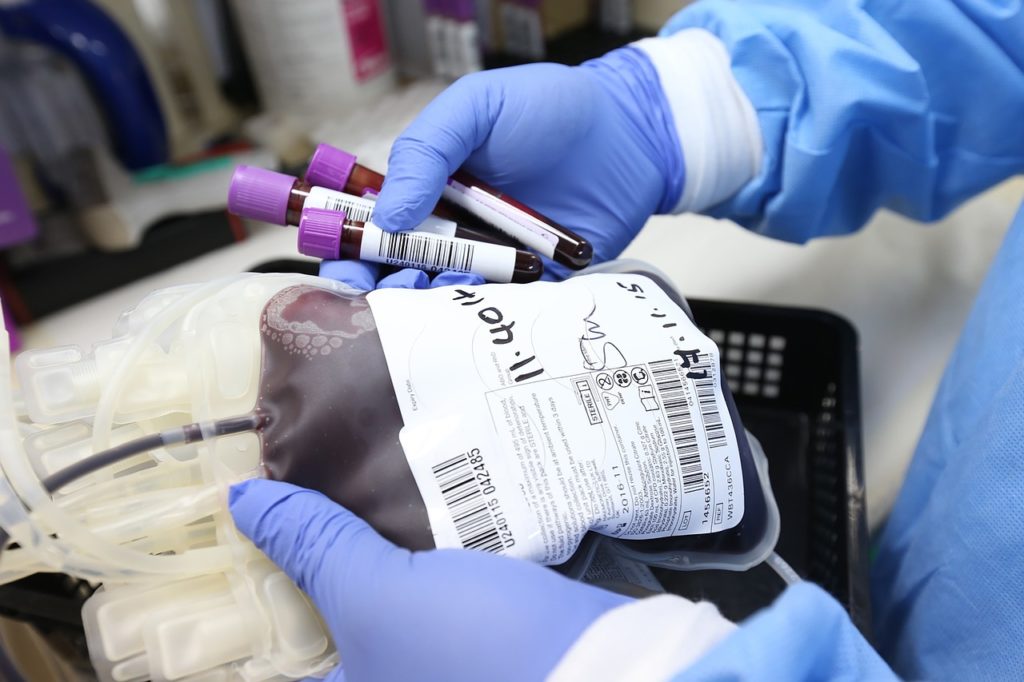Original article (in Serbian) was published on 23/4/2024; Author: Milica Ljubičić
Sasa Borojevic, a well-known conspiracy theorist and candidate for councilor on the list of the Serbian Progressive Party (SNS) in the upcoming Belgrade elections, claims that members of the LGBT population are prohibited from donating blood voluntarily. The Institute for Blood Transfusion refutes these claims, clarifying that sexual orientation does not influence the selection of blood donors. Every potential donor is required to complete a questionnaire that includes questions about health status and risky behaviors. Anyone who meets the prescribed conditions is eligible to donate blood.
“At the LGBT tea party, I raised my hand and asked why LGBT individuals are prohibited from being voluntary blood donors (…) I still don’t understand why they can’t donate blood if everything is fine with them (…)It appears that even heterosexual couples are ineligible if they’ve engaged in anal intercourse (…) That’s probably when I got the answer to how healthy they (LGBTIQ individuals) are,” Borojevic said in a video he shared on Facebook on April 19.
In Borojevic’s video, he also shows a questionnaire that all potential blood donors must complete. One of the questions asks whether the individual has engaged in anal sex. This questionnaire is also available on the website of the Institute for Blood Transfusion.
Ivana Rodic, head of the Department for Motivation and Organization of Voluntary Blood Donors at the Institute for Transfusion, explained to Raskrikavanje that the LGBT population is neither singled out nor discriminated against regarding risky behaviors and sexual relationships.
The questions refer to infectious diseases that can be transmitted through blood (they are prescribed by law), use of drugs, bodybuilding preparations (steroids), unprotected sex during the past six months and anal sex during the past six months.
Rodic emphasizes that ‘anal sexual intercourse is singled out as a particular concern because, due to the anatomical structure of the anus, expert studies identify this type of intercourse as especially risky, with a significantly higher likelihood of transmitting sexual diseases and bacterial infections. All the aforementioned questions apply to every potential blood donor.
She notes that both homosexual and heterosexual couples are required to defer blood donation for six months after engaging in anal sex. Therefore, this regulation does not constitute a complete ban but rather a postponement, and it applies not exclusively to members of the LGBT population but to anyone who has had anal sex.
Additionally, this questionnaire is completed by every potential blood donor upon arrival for a transfusion. It includes a series of questions regarding health status and risky behaviors. According to the Institute, providing honest answers to these questions is the first step in ensuring a safe transfusion process.
“All citizens aged 18 to 65 who are healthy and who responded to the questionnaire in accordance with legal regulations, can voluntarily donate blood,” Ivana Rodic told Raskrikavanje.
Additionally, there are various reasons why someone may be temporarily or permanently unable to donate blood, but sexual orientation is not one of them. For instance, blood donation is deferred for six months following acupuncture, tattooing, piercing, or contact with a syphilis patient.
Reasons for permanently disqualifying potential donors include various heart, lung, endocrine, or autoimmune diseases, as well as drug addiction or chronic alcoholism. Rodic notes that the blood from each donor undergoes two types of testing to screen for transmissible diseases. In addition to serological testing, molecular testing has been conducted since July 2019 for all donated blood at the Institute for Blood Transfusion of Serbia. Rodic adds that the length of temporary deferrals varies across different countries.
In May of last year, the US Food and Drug Administration (FDA) revised its blood donation guidelines, removing restrictions based on sexual orientation or gender identity. Instead, the guidelines now focus on an individual risk assessment. Every potential donor is questioned about their sexual activity in the past three months, regardless of their sexual orientation.
“All prospective donors who report having a new sexual partner, or more than one sexual partner in the past three months, and anal sex in the past three months, would be deferred to reduce the likelihood of donations by individuals with new or recent HIV infection who may be in the window period for detection of HIV by nucleic acid testing,” states the FDA.
This agency believes that by adopting this approach, it will expand the pool of eligible voluntary blood donors while maintaining safety standards. Initially, restrictions on donating blood based on sexual orientation were introduced in the 1980s due to concerns about HIV transmission. However, advancements in science and medicine have led to the easing of these restrictions. Nonetheless, the specific restrictions or deferral periods still vary by country.
In 2022, the international non-governmental organization ILGA Europe, which advocates for the rights and equality of LGBT individuals, reported that 11 countries either lifted bans or shortened the deferral period for blood donations from men who have sex with men. France, Greece, Ireland, Lithuania, Slovenia, Austria, and Armenia completely lifted these bans. Belgium reduced the deferral period from 12 to four months, and Estonia maintained this restriction until it was fully abolished on March 1 of this year.

